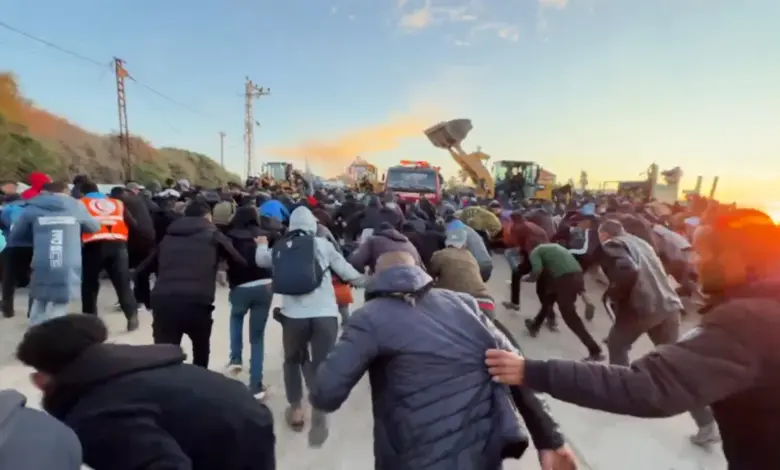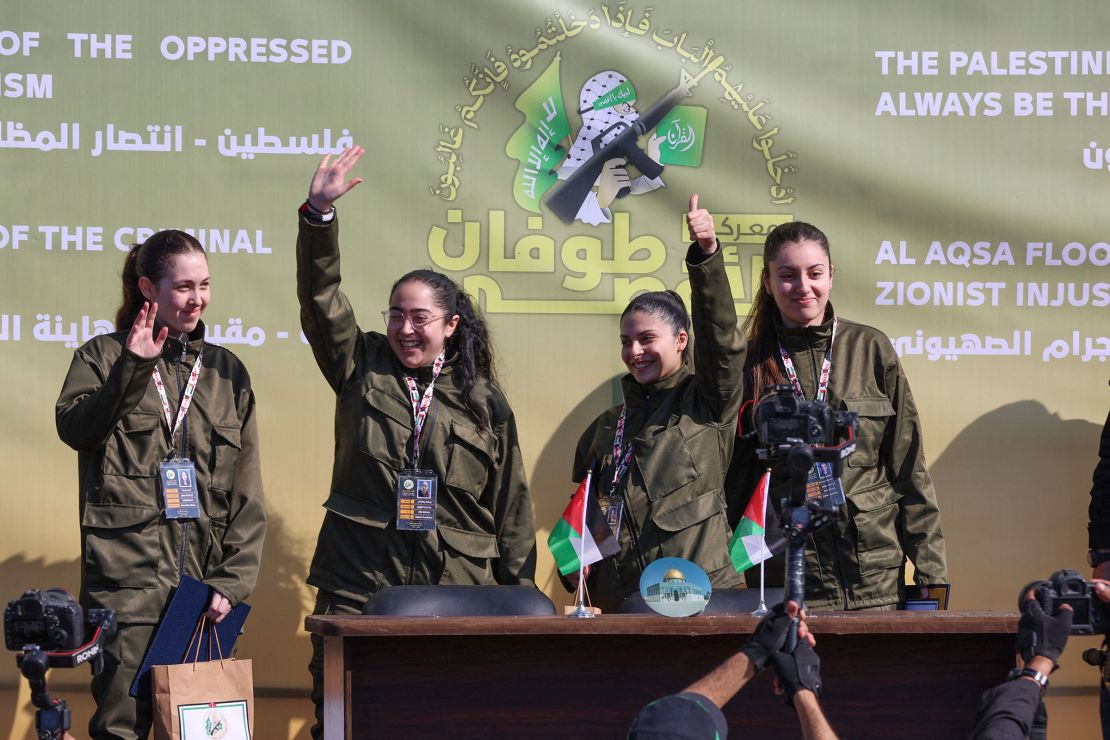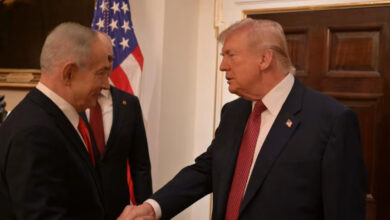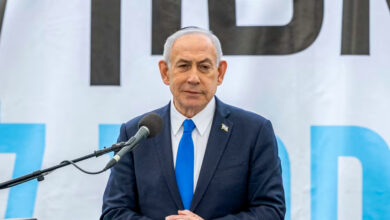
The ceasefire deal was already a brittle agreement, with Israeli statements often calling it a “framework” as opposed to a deal.
Tensions escalated this week when 29-year-old Arbel Yehud, a civilian who Israel says should have been freed Saturday, was not among the four women released. Israel, in turn, did not allow Gazan civilians to return north past the Netzarim Corridor, which was meant to take place Saturday under the ceasefire and hostage deal.
Complicating the matter is that Yehud is not being held by Hamas. A senior source in the Palestinian Islamic Jihad movement (PIJ), another militant group in the Strip, told CNN that it is holding Yehud and that she “will be released under the terms of the agreed-upon prisoner exchange deal.”
Both Hamas and Israel have accused the other of failing to stick to their end of the bargain, raising questions about how well the ceasefire that took more than 15 months to reach would hold.
“This is a very delicate matter,” Gershon Baskin, a former Israeli hostage negotiator who used to speak to Hamas through backchannels, told CNN.
Baskin explained that Hamas “will not give anything for free,” in reference to Yehud’s captivity. He added that “Israel’s threat not to allow the displaced to move north” does little to convince Hamas to help push for her release.
The former negotiator warned that “carrying out the threat” of not allowing displaced Palestinians to move north “could lead to a halt in the release of the hostages” and advised Israel to try to keep the deal alive.
“It is better for Israel to talk less and let the mediators do more,” Baskin added, urging Israel to “convey to Qatar and Egypt that it is ready to adopt the three-week deal that Hamas agreed to in September.
‘How will the US respond?’
Israeli military spokesperson Daniel Hagari said on Saturday that “Hamas didn’t fulfil the agreement in terms of its obligation to return civilians first,” adding that “we will insist that Arbel Yehud return” along with the rest of the hostages.
Hundreds of displaced people were seen fleeing in panic after the Israeli military opened fire on Saturday to prevent them from crossing into northern Gaza to return to their homes, CNN footage showed. The Israeli military said it was ‘unaware of any harm’ after its troops fired ‘warning shots in order to distance’ a crowd in Gaza.
Hamas said that Israel “continues to procrastinate in implementing the terms of the ceasefire agreement and the prisoner exchange by maintaining the closure of al-Rasheed Street and preventing the return of displaced persons walking from the south to the north.”
The Palestinian militant group added that it holds Israel “responsible for any delays in the implementation of the agreement and the repercussions that may arise on the remaining phases.”
There are questions as to how the United States under President Donald Trump would respond to the violations alleged by both sides.

An Israeli official told CNN Saturday that Israel asked the Trump administration to push on Hamas to abide by the terms of the deal and free Yehud. The message was sent to Trump’s Middle East envoy, Steve Witkoff, the official added. CNN has reached out to Trump administration for comment.
The ceasefire “framework,” as Israel refers to it, “was hardly ironclad from the get-go,” Dr H.A. Hellyer, senior associate fellow at Center for American Progress and the Royal United Services Institute, told CNN.
“The question is now, after clear violations by the Israelis, how will the US respond? Will they use pressure to ensure adherence, or are we seeing the breakdown of this pause in hostilities so soon after the signing?” Hellyer said.
A choreographed show of force
Tensions simmered as the second exchange of Israeli hostages and Palestinian prisoners took place. The militant group used it to choreograph a poignant show of force despite Israel’s warnings.
Propaganda video released by Hamas after the four Israeli hostages were freed showed the women paraded before a crowd as they received certificates for their release and souvenir keychains. CNN does not know the circumstances under which the hostages were speaking, including whether they were speaking under duress.
In the nearly three-minute video, the four women are seen seated inside a van, smiling and posing. The women were seen thanking Hamas’ military wing, the Al Qassam Brigades, “for the good treatment,” including for providing food and water. They also thanked them for “protecting” them from shelling.
None of the four women are native Arabic speakers. In the video, they can be heard speaking in Hebrew accents.
Hamas’ propaganda videos have left a sour note over the years. Previous Hamas’ videos of the four soldiers’ kidnapping by Hamas on October 7, 2023 had gone viral. The women were dressed in civilian clothes at the time of their taking, including pajamas when they were pulled from their bedrooms. Videos showed them covered in blood.

Experts say that deals like this are bound to be filled with complications, especially as Hamas tries to use what leverage it has over Israel, and as Israel tries to retrieve hostages while destroying the group.
Yohanan Tzoreff, a senior researcher at the Institute for National Security Studies (INSS) in Tel Aviv, said concerns about violations, delays, or crises come with “any deal with an organization like Hamas.”
Such concerns “are rooted in the many past grievances between the two sides, numerous bloody conflicts, and, of course, the heinous attack carried out by Hamas on October 7,” Tzoreff said.
“The issue of hostage release became a test for both sides,” he said, adding that Israel “finds itself facing a dilemma: how to secure the hostages’ release while fully achieving the second goal of dismantling Hamas.”
CNN’s Tim Lister, Abeer Salman, Mohammad Al Sawalhi, Eyad Kourdi, Ibrahim Dahman and Jeremy Diamond contributed reporting.




